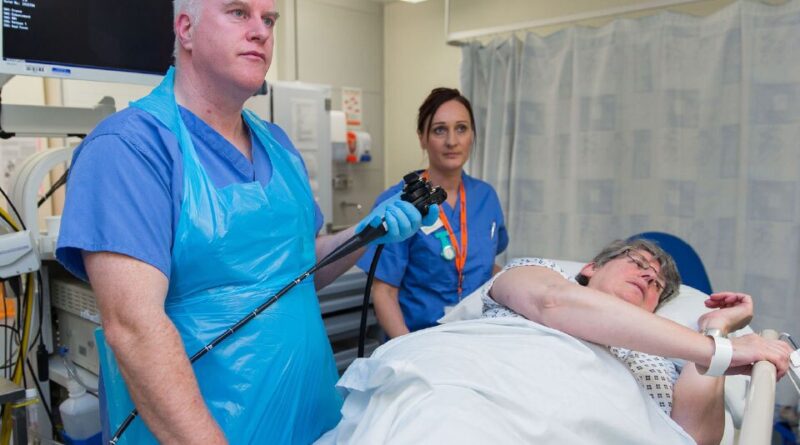How long dose colonoscopy take?
A colonoscopy is a procedure to examine the inside of your large intestine colon and rectum. Many patients aks that How long dose colonoscopy take?. The colonoscopy is usually does the procedure to informs the procedure to detect and find colon and rectal cancer. Colonoscopy has grown fairly common but there are a few things that everyone should be aware of concerning preparation, anesthetic, and recovery.
Is Colonoscopy important?
According to the Agency for Disease Control and Prevention Colon Cancer is the third most common cause of cancer which leads to death in both women and men. Because of colonoscopy in 2020 in the United States, this disease has taken thousands of lives. This is a cancer stage in which the person can only live for five years after being diagnosed by the cancer institute. When the cancer is not identified until it has spread to the local lymph nodes the survival rate is lower the 72 percent. It drops to 14 percent when the disease has spread to distant faraway locations such as the liver or lungs.
Colonoscopy is colon cancer testing that is twice as a preventive since it does more than only identify the disease soon because the cancer of the colon develops as a typical tumor known as spores. A colonoscopy can help prevent it by identifying and detecting abnormalities before they become dangerous. A colonoscopy is also used to identify the condition or Crohn’s illness ulcerative colitis, and also to figure out the reasons for the complaints such as rectal bleeding, changes in bowel activity abdominal pain, and unexplained weight loss.
In which age Colonoscopy is important?
The perfect age for Colonoscopy is in the age of 50. The US Preventive Services Task recommends for colonoscopy test if you have an inherited disease. Most professionals recommend this colonoscopy at a younger age but only if the disease is in the family history. The perfect age for a colonoscopy is 50 to 70. Black people are at a higher risk of colonial disease and they should be screened at the age of 45.
The prevention force also recommends that if you want to do a colonoscopy then you have to do it after every 10 years until you reach the age of 75, If the polyps are shown in the first colonoscopy then you must repeat it after 10 years.
How long does a Colonoscopy procedure take?
The procedure of colonoscopy takes 30 to 60 minutes. However, this procedure does not include the preparations and recovery at the hospital or the treatment center. The total procedure of colonoscopy including departure and arrival of all the procedures takes almost two to three hours.
How was the colonoscopy done? Is it Painful?
Every colonoscopy procedure is done with complete prevention and under the supervision of anesthesia, so the patient can’t feel anything. Yes, exactly the procedure is painful that’s the reason the patient was injected the anesthesia. The patients who want the light sedation of anesthesia feel discomfort and pain.
What is the procedure of recovery?
You will not sleep long even if strong sedation is injected. The effect is normally turned off within 30 minutes. After a few hours, you may feel bloating or need to pass the gas, but exercise may help utilizing the reduction of discomfort. The removal of tumor or tissue samples may result in some slight bleeding, in your first bowel movement following the treatment, if you continue to pass the blood or clots of blood or if you have gained abdomen pain for a long time with fever you must see your doctor in these cases.
What are the risks during Colonoscopy?
During colonoscopy, risks are minimal but do exist. In the United States, the researcher preventive service force found four to eight major issues for every 10,000 colonoscopy operations. The most frequent consequences include bleeding and clots of bleeding. Common typical risks, such as severe abdominal pain or anesthesia reactions such as asthma and heart attacks. Death rates are very low and rare in colonoscopy.
What type of Anesthesia is Used while doing Colonoscopy?
Before having a Colonoscopy must acknowledge some important factors.
- The gastroenterologist will decide your anesthesia level, but you ask him for your satisfaction. Some gastroenterologist makes a mistake to give you a deep sedation. And this does not always happen, but if you want the deep dose you have to request your doctor for that.
- Always before injecting the anesthesia into the patient, age, health habits, and medical conditions are checked, so far instance doctor has to look at the patient’s condition like if the patient has a heart attack or obesity or any type of conditions that should avoid the dose of anesthesia.
- Your health history is important to check for the sedation of anesthesia. Medical checkups are the most important thing for your colonoscopy.
- All the sedations are injected through the arm or as per the demand of the doctor. Most patients receive moderate or sometimes deep sedation.
There are also a few types of anesthesia and these are
- No sedation:
- Light and minimal sedation
- Moderate sedation,
No sedation is very rare in America, only 2 percent of patients aren’t allowed for any sedation during colonoscopy. This happens when there is no guide or some family members or friends with them and they have to drive themselves home. Avoiding any type of alcohol while driving is not good it may be risky on the road.
Minimal or light sedation may make you awake and that is painful and discomfort. And for moderate sedation, you may be drowsy or fall asleep during the procedure and maybe you will forget about the pain and procedure.
Wrapping up
I hope you will get the educated information about Colonoscopy in this article. Most people do not have enough knowledge about Colonoscopy and become much instanced before the procedure. Read carefully the article and you will never regret reading it. One thing about general anesthesia is that this type of anesthesia is not commonly used in Colonoscopy. But for those patients who have physical abnormalities. It may risk the body’s stomach content.




